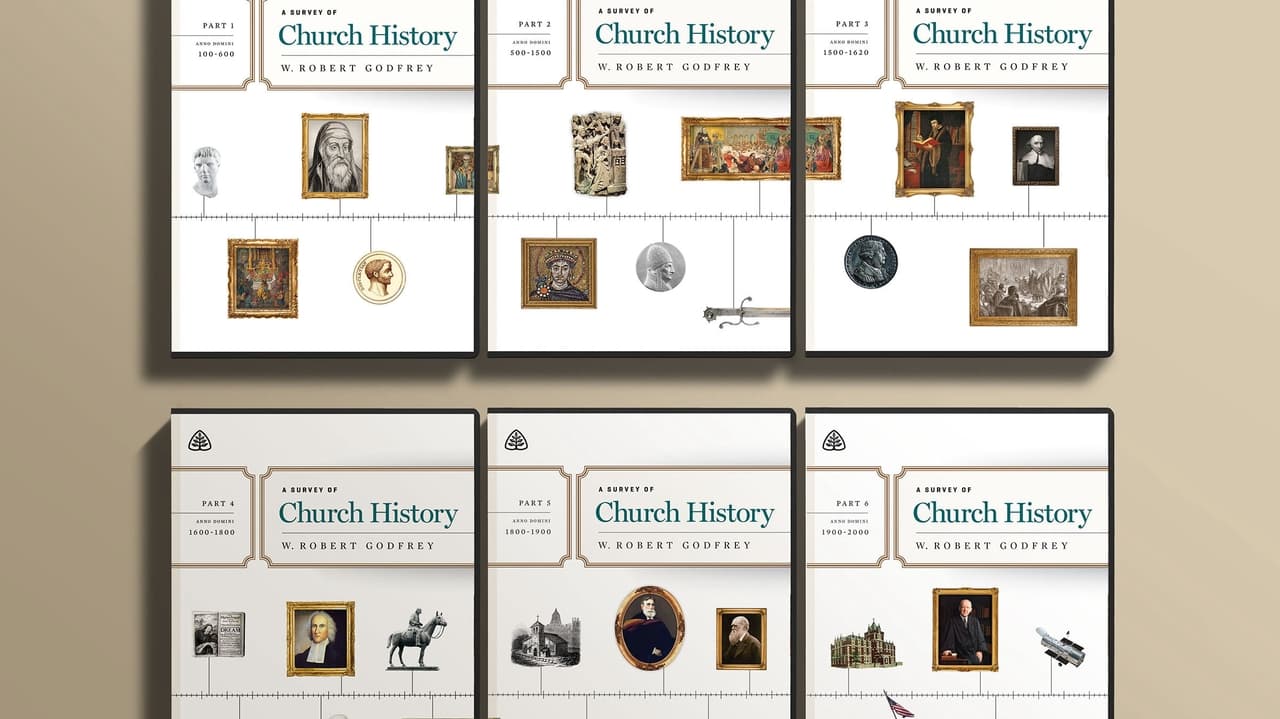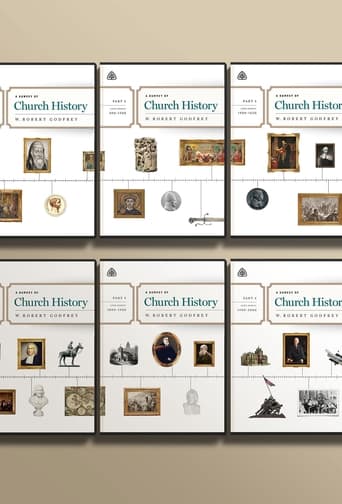A Survey of Church History Season 5

When you look back to study the early church, you're not just getting an interesting history lesson. You're seeing a testament of God's faithfulness and steadfast love for His people. In this series, respected church historian W. Robert Godfrey introduces us to the major figures, events, and contributions from the first five hundred years of the church.
Watch NowWith 30 Day Free Trial!
A Survey of Church History
2013
Even with the rise of Darwinism, a growing liberalism, and an onslaught of other challenges in the nineteenth century, the church continued to grow and launch missionary efforts around the world. In this series, respected church historian W. Robert Godfrey illuminates the triumphs and failures of the nineteenth century to help Christians understand the opportunities and challenges of our own day.
Watch Trailer
With 30 Day Free Trial!
A Survey of Church History Season 5 Full Episode Guide
In the closing years of the nineteenth century, Abraham Kuyper stepped forward as an outspoken critic of the pluralistic ideas infiltrating the church. In the twelfth part of this series, W. Robert Godfrey maps out Kuyper's vision for a society that would not hinder Christian freedom.
What does it mean to live in a culture where Christianity is losing influence? In the eleventh part of this series, W. Robert Godfrey looks at how faithful Christians dealt with that question in the nineteenth century.
Modernism, socialism, Darwinism, and other new ways of thinking created growing secular threats to the Roman Catholic Church. In the tenth part of this series, W. Robert Godfrey outlines how Rome responded in the First Vatican Council.
Today, many in our culture believe that science and Christianity are incompatible. In the ninth part of this series, W. Robert Godfrey explains where this idea came from-and why it is false.
The Civil War not only divided America-it also divided the church. In the eighth part of this series, W. Robert Godfrey examines the consequential events that led many churches and denominations to split in two.
Many nineteenth-century Christians began to emphasize emotional experience over sound theology. In the seventh part of this series, W. Robert Godfrey addresses how the Presbyterian church sought to resist this trend.
A number of cults flourished in America in the nineteenth century. Where did they all come from? In the sixth part of this series, W. Robert Godfrey considers why America has been the most productive source of cults the world has ever seen.
Rather than depending on the life-transforming power of the Holy Spirit, Charles Finney believed revival could be broken down to a science. In the fifth part of this series, W. Robert Godfrey discusses Finney's methods, his critics, and the true nature of revival.
As Americans moved west, higher education became less available. And less-educated churchgoers demanded less of their pastors. In the fourth part of this series, W. Robert Godfrey observes how the church on the frontier became a breeding ground for bad theology.
In the nineteenth century, a "Second American Revolution" took place in the growing conviction that more power should be placed in the hands of the American people. In the third part of this series, W. Robert Godfrey considers the impact this political shift had on American religious life.
Ideas have consequences, and the kinds of ideas that were gaining traction in Europe set the stage for the entire nineteenth century. In the second part of this series, W. Robert Godfrey explores these dangerous ideas and the warning they pose not to accommodate Christianity to the culture.
In the nineteenth century, many of the intellectual and cultural elites in the West began to attack Christianity. In the first part of this series, W. Robert Godfrey considers how the church responded and what we can gain from this formative time in history.
Free Trial Channels
Seasons


























